Best Raw Material for Maternity Pads: A Guide to Comfort and Safety
Navigating Postpartum Care: Choosing the Right Maternity Pad Material
Bringing a new life into the world is a beautiful experience. However, the postpartum period comes with its own set of challenges, and finding the right maternity pads for comfort and hygiene is paramount. But with so many options available, how do you know which maternity pad materials are best for you?
This comprehensive guide delves into the world of best raw material for maternity pads, arming you with the knowledge to make an informed choice. We’ll explore different sanitary pad materials, their pros and cons, and what to consider for maximum comfort and safety during this sensitive time.
Why Material Matters: Understanding Your Needs
Before diving into specific materials, let’s understand why choosing the best material for postpartum bleeding is so crucial:
- High Absorbency: Postpartum bleeding, also known as lochia, is significantly heavier than regular periods. You need a pad with a strong absorbent core material to handle the flow and prevent leaks.
- Gentle on Sensitive Skin: Your skin is more sensitive postpartum, making hypoallergenic and gentle materials essential to avoid irritation and discomfort.
- Breathability: Trapped moisture can lead to bacterial growth and infections. Breathable maternity pad materials promote airflow, keeping you dry and comfortable.
- Comfort is Key: You’ll be wearing these pads for an extended period, so comfort is paramount. Look for softest material for maternity pads that are also discreet and don’t bunch up.
- Sustainability Matters: Choosing eco-friendly maternity pad materials minimizes your environmental impact and promotes a healthier planet for your little one.
Exploring the Best Raw Materials for Maternity Pads
Now, let’s explore some of the most common and best raw material for maternity pads, along with their benefits and drawbacks:
1. Organic Cotton: The Natural Choice
Organic cotton maternity pads are gaining popularity, and for good reason. Here’s why:
- Naturally Soft and Breathable: Cotton is inherently soft and breathable, making it ideal for sensitive skin.
- Hypoallergenic: Organic cotton is grown without harmful pesticides and chemicals, reducing the risk of irritation.
- Biodegradable: Unlike synthetic materials, organic cotton decomposes naturally, minimizing environmental impact.
However, there are a few things to consider:
- Lower Absorbency: Compared to some synthetic materials, cotton might not be as absorbent.
- Higher Cost: Organic cotton pads often come at a premium price.

Get Free Sample Kit Of Our Fabric At Your Door Step
- Online Order
- Door Delivery
- 1-Click Quotation
2. Bamboo: The Sustainable Superstar
Bamboo maternity pads offer a unique blend of sustainability and performance:
- Highly Absorbent: Bamboo fibers are naturally porous and absorbent, effectively wicking away moisture.
- Naturally Antibacterial: Bamboo possesses inherent antibacterial properties, helping to neutralize odors and maintain hygiene.
- Rapidly Renewable: Bamboo grows incredibly fast, making it a sustainable and eco-friendly option.
However, keep in mind:
- Availability: Bamboo pads might not be as widely available as other options.
- Texture: While generally soft, bamboo pads might have a slightly different texture than cotton.
3. Superabsorbent Polymers (SAP): The Absorbency Champions
Superabsorbent polymers are synthetic materials renowned for their exceptional absorbency:
- Unmatched Absorbency: SAP can absorb many times their weight in fluid, making them ideal for heavy flow.
- Leak Protection: Their superior absorbency offers excellent leak protection, providing peace of mind.
- Thin and Discreet: Pads with SAP can be made incredibly thin while still offering high absorbency.
However, consider these factors:
- Not Biodegradable: SAP is not biodegradable, raising environmental concerns.
- Potential for Irritation: Some individuals might experience irritation or allergic reactions to SAP.
4. Fluff Pulp: The Traditional Choice
Fluff pulp, typically derived from wood pulp, is a traditional material used in many pads:
- Cost-Effective: Fluff pulp is generally more affordable than other materials.
- Widely Available: Pads made with fluff pulp are readily available in most stores.
However, there are some drawbacks:
- Lower Absorbency: Fluff pulp is not as absorbent as SAP or some natural fibers.
- Environmental Impact: Conventional wood pulp production can contribute to deforestation.
5. Hydrophilic Nonwovens: The Soft Touch
Hydrophilic nonwovens are fabrics engineered to be highly absorbent and soft:
- Gentle on Skin: These materials are designed for skin contact and are typically very soft.
- Good Absorbency: Hydrophilic nonwovens offer good absorbency, though not as high as SAP.
However, consider:
- May Contain Plastics: Some hydrophilic nonwovens contain plastics, impacting their biodegradability.
6. Breathable Backsheet: Keeping You Dry and Comfortable
The breathable backsheet is the outermost layer of the pad, and its material is crucial for comfort:
- Allows Airflow: A breathable backsheet allows air to circulate, preventing moisture buildup and discomfort.
- Reduces Risk of Irritation: Proper airflow helps keep the skin dry, reducing the risk of irritation and rashes.

Get Free Sample Kit Of Our Fabric At Your Door Step
- Online Order
- Door Delivery
- 1-Click Quotation
Look for backsheets made from materials like:
- Cotton: Naturally breathable and soft.
- Plant-based Films: Biodegradable and breathable alternatives to plastic.
Making the Right Choice: Factors to Consider
With so many maternity pad materials available, choosing the right one can feel overwhelming. Here are some key factors to consider:
- Flow: How heavy is your postpartum bleeding? Heavier flows might require pads with higher absorbency, like those with SAP.
- Skin Sensitivity: If you have sensitive skin, prioritize hypoallergenic materials like organic cotton or bamboo.
- Environmental Impact: Consider the environmental impact of your choices. Opt for biodegradable materials like organic cotton or bamboo when possible.
- Budget: Maternity pad prices vary depending on the materials used. Determine your budget and explore options within your range.
- Comfort: Ultimately, the best maternity pad is the one that feels most comfortable for you. Don’t hesitate to try different options until you find the perfect fit.
FAQs About Maternity Pad Materials
1. Are organic cotton maternity pads worth the extra cost?
Answer: While more expensive, organic cotton pads offer significant benefits for sensitive skin and the environment. If these factors are important to you, they are worth considering.
2. Can I use regular pads for postpartum bleeding?
Answer: It’s not recommended. Regular pads are not designed for the heavy flow of postpartum bleeding and might leak.
3. How often should I change my maternity pad?
Answer: It’s generally recommended to change your maternity pad every 3-4 hours, or more frequently if needed, to maintain hygiene and prevent irritation.
4. What are the signs of an allergic reaction to maternity pad materials?
Answer: Signs of an allergic reaction can include redness, itching, burning, rash, or swelling in the vaginal area. If you experience any of these symptoms, discontinue use and consult your doctor.
Favourite Fab: Your Partner in Comfort and Care
At Favourite Fab, we understand the importance of using the best raw materials for maternity pads. We are committed to providing high-quality, comfortable, and safe products for mothers during the postpartum period. Our team of experts carefully selects materials that prioritize both performance and sustainability, ensuring you have the best possible experience.
Contact Us:
- Email: sale@favouritehub.com
- WhatsApp: +91-95288811566
We are here to answer any questions you may have and help you find the perfect maternity pads to meet your individual needs.
Choose Favourite Fab for a comfortable and confident postpartum recovery.




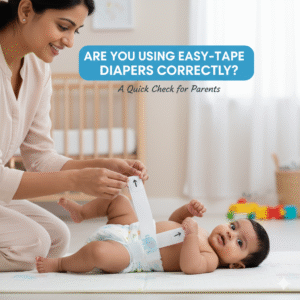
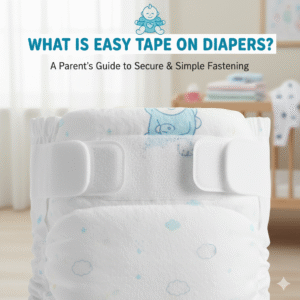
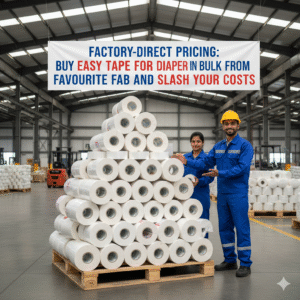

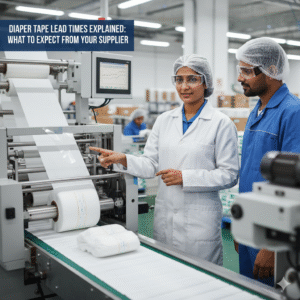
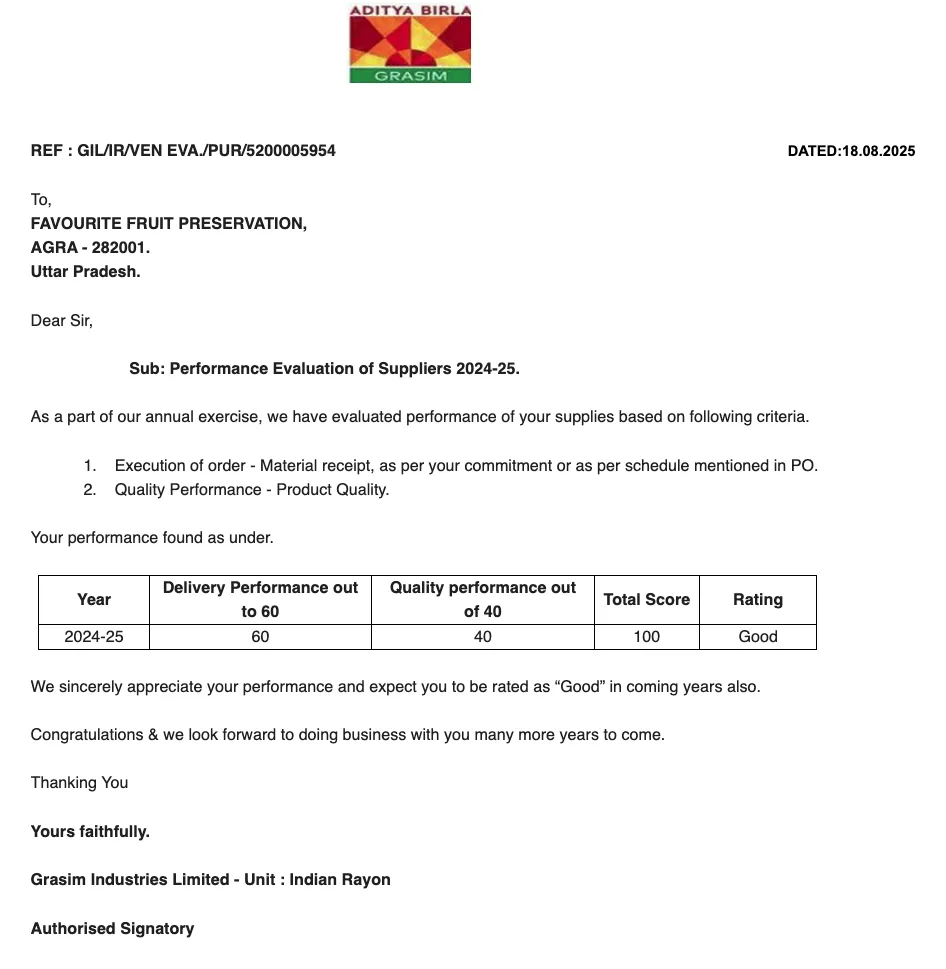




























We Do Business On Trust.Our Nonwoven fabric Business is Built on trust. Trust starts with Transparency.
Mr.Ramniwas Garg Founder Of Favourite Group